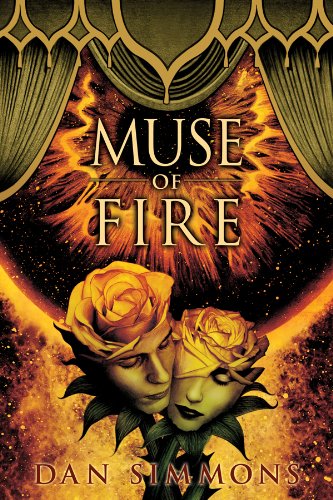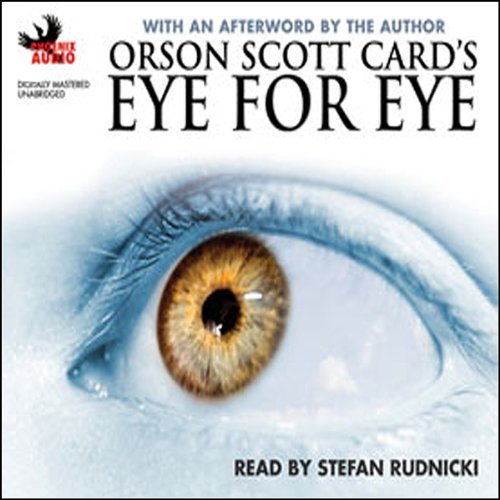
![]() The Last Days of Jericho by Thomas Brookside (2010)
The Last Days of Jericho by Thomas Brookside (2010)
The Last Days of Jericho is Thomas Brookside‘s follow up to his incredibly creative and well-executed novella De Bello Lemures, or The Roman War Against the Zombies of Armorica. Let’s make one thing clear: Thomas Brookside may be self-published, but his writing is as crisp and descriptive as that of any big house published author. Both stories take place in a very particular historical setting, and Brookside nails the narrator’s tone and delivers an extremely genuine-sounding account.
The Last Days of Jericho tells the story of the fall of Jericho in ancient Canaan. Brookside’s fictional account represents Joshua’s god as a supernatural, near-monster-like entity that destroys everything in its path. The first-person narration is handled by a fictional citizen in Jericho who manages the King’s travel and trade. Brookside only teases his “monster” in the first half of the novella, and the first hardcore supernatural activities don’t occur until midway through this 130-page story. Bookending the horror, the reader is immersed in a middle/late Bronze Age society, depicted through descriptions of day-to-day life, religion and political diplomacy.
As the second half of the book winds towards its conclusion, our narrator takes the reader through an almost metaphysical, poetically symbolic journey. Brookside’s afterword provides a nice perspective on his approach to writing the story. ~Jason Golomb

![]() Muse of Fire by Dan Simmons (2008)
Muse of Fire by Dan Simmons (2008)
They can see and hear and maybe translate the words, but how can you translate Shakespeare to alien minds? ~Wilbr
In the far future, in a far part of the universe, a space-travelling group of actors wander worlds inhabited by human slaves performing the works of Shakespeare. Narrated through the voice of a secondary player, Wilbr, Dan Simmons builds a world of creatively crafted aliens, religions and gods.
Simmons builds his plot around a series of these Shakespearian performances on grand-universal stages to a variety of beings. Even at fewer than 100 pages, Simmons crafts realistic and believable characters and the framework of a fascinating and detailed universe.
The novella’s title refers to the name of the troubadour’s ship. The Muse is a being that runs the spacecraft, reminiscent of, but in a much less dark way, John Scalzi’s god-driven starships in his novella God Engines.
Simmons evokes a passion for The Bard and I couldn’t help but think that he’d not yet gotten Shakespeare completely out of his system after writing his duology Olympos and Illium, which relies heavily on Shakespeare-driven themes. While not giving the ending away, Simmons may acknowledge that he finally found some creative Shakespearian closure with Muse of Fire, when an alien suggests to Wilbr, You people need to learn some new poets.
Simmons continues to prove that his creative abilities go well beyond a narrowly defined genre such as science fiction. He writes so sharply and with an imbued sense of intelligence that his deft capabilities lift the literary sense and pleasure of his readers. Muse of Fire was a finalist for the 2008 Locus Award for Best Novella. ~Jason Golomb

![]() Eye for Eye by Orson Scott Card (1987)
Eye for Eye by Orson Scott Card (1987)
Orson Scott Card’s novella Eye for Eye is in the form of an interview… or an interrogation. Mick Winger, a seventeen year old boy who is being questioned by an unknown person, tries to explain that he understands it’s wrong to kill people, especially if whatever they’ve done to make Mick angry isn’t enough to justify killing them. The problem is, whoever makes Mick angry has a high likelihood of dying of some form of cancer. Mick has gradually learned to control his temper, especially since he has realized that letting his anger loose sends a pulse of sparky energy, visible only to Mick, that strikes the person who angered Mick with prostate cancer. Or leukemia. Or some other form of cancer. Mick has killed more people in his life “than Al Capone.”
Mick grew up in an orphanage, but now that he’s gained some control over his abilities, there are several people after him ― including his birth parents, who are part of an isolated, fanatical cult of extended family members who all possess Mick’s killing ability to one degree or another. Any babies born to the group’s members who exhibit a powerful ability are left on the doorsteps of social services, so they won’t kill anyone in the group until they’re old enough to learn to bottle up their anger. (They’ll kill other innocent people instead.) Mick has the most power the group has ever seen ― and now they want him back in the fold.
Published in 1987, this novella clearly shows the influence that televangelists, like Jimmy Swaggart and Jim and Tammy Bakker, had on society at that time. Card created an insulated, zealous group that mouths religion but is intent on the destruction of others who oppose or disagree with them. In this story, however, it’s not a distant punishment from God, in His own time, but a more immediate death sentence imposed by their paranormal abilities, occasionally helped along with weapons. It’s an interesting story, but feels dated at this time, and is fairly predictable.
Eye for Eye won the 1987 Hugo Award for best novella. ~Tadiana Jones

![]() Alien StarSwarm” by Robert Sheckley (1991)
Alien StarSwarm” by Robert Sheckley (1991)
Salvatore is the 16-year old captain of the spaceship Endymion. When he rescues a beautiful princess, she asks him to help her reclaim the planet Melchior, which has recently hired her to be their new ruler. Before she arrived, the leaderless planet was taken over by an alien species knows as the Balderdash. She needs Salvatore’s men to restore her to the throne.
Alien Starswarm pokes fun at juvenile adventure stories in which boys drink Ovaltine and save the planet. It’s supposed to be funny, but it’s not. It’s puerile. The princess’s lines are especially cringe-worthy:
How courteous you are… I can only wish that you were a man several years my senior because we could then get together and enjoy those pleasures which, hitherto, I have enjoyed only in the pages of sleazy novels and ancient soap opera tapes.
If you find this sort of thing funny, Alien StarSwarm may be for you, but I thought it was horrendous. I understand that it’s supposed to be satirical, but I prefer my satire to be a little more nuanced.
Jonathan Waters narrates Wildside Press’s two-hour long audio version. His voices for the male characters are nice, but the princess voice is just as horrid as her lines are. ~Kat Hooper





(Kat, that reads like vintage Sheckley to me.)
I love this feature! There is so much interesting work being done in the shorter forms now.
It’s been a while, but I seem to recall really enjoying Muse of Fire